The documentary A Long Cherished Dream, directed by British two-time Oscar-winning director Malcolm Clarke, premiered globally in mid July. In the four-episode documentary, Clarke shines a spotlight on China’s road to Xiaokang society, also known as a moderately prosperous society, by telling the stories of ordinary people.
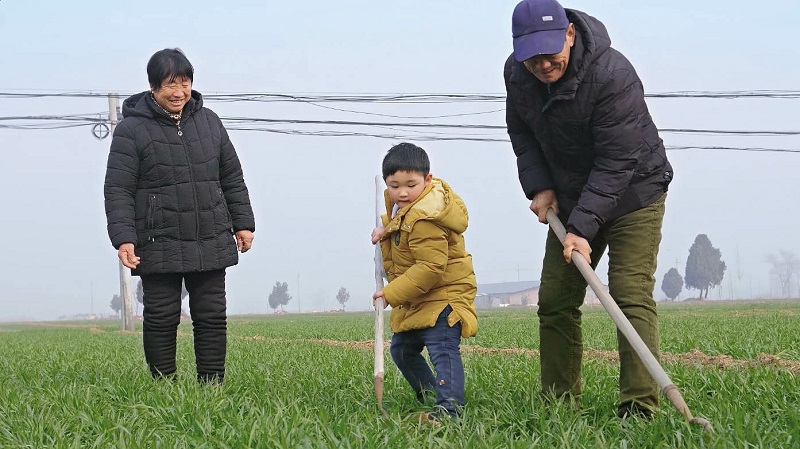
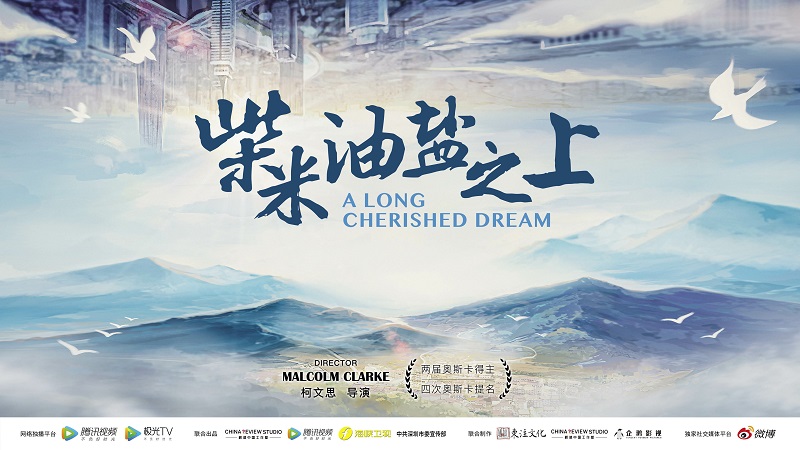

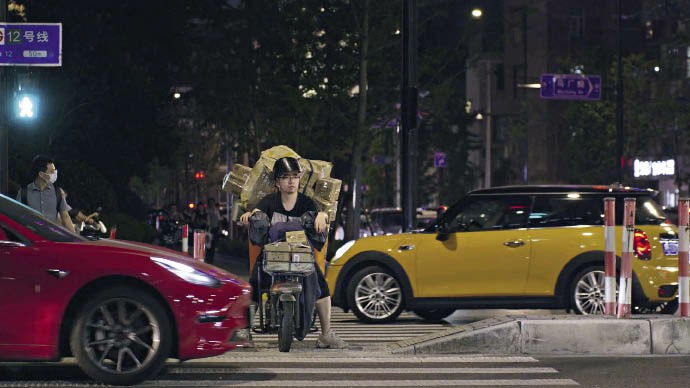
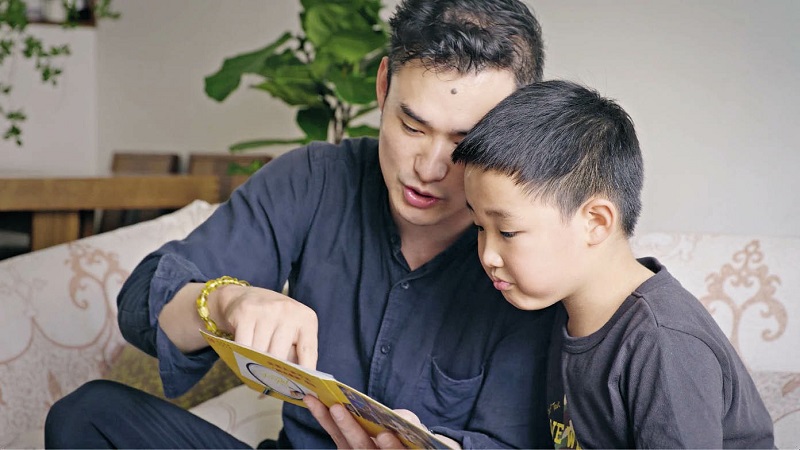
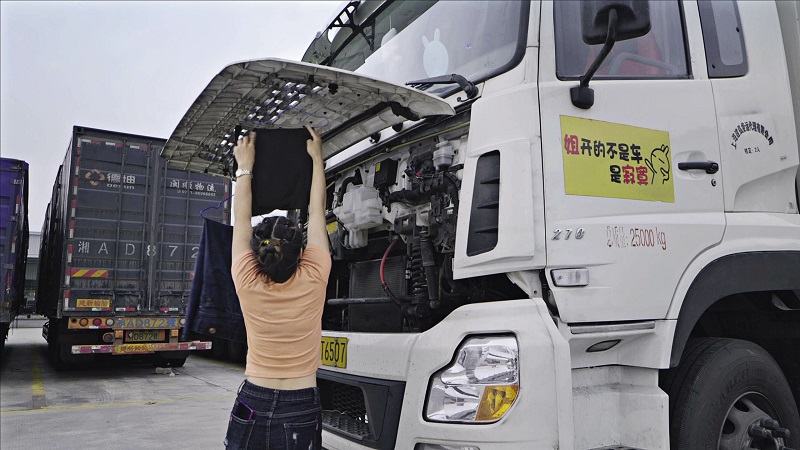

The poster and story photos of the documentary, A Long Cherished Dream, directed by British two-time Oscar-winning director Malcolm Clarke.
Yearning for a Better Life
Xiaoganxi Village in Yiliang County, Zhaotong City, Yunnan Province, is situated in the hinterland of the Wumeng Mountains at the junction of Yunnan, Guizhou, and Sichuan provinces, one of the poorest areas in China. Chang Kaiyong, secretary of the village Party branch, has devoted almost all his time to poverty alleviation. He is kind, hardworking, and very attached to the community. He doesn’t get paid much, and nearly half of his salary, around US $300, was used to pay for his car’s fuel to get around to visit poor families. More than 100 households in the village had to be relocated so that they can escape poverty, and more than 100 dilapidated houses need to be repaired. He made countless trips on muddy roads. Once he even had to stay in his car for several days after a mudslide blocked the route.
His wife Cao Jiayan helps him whenever she can. “I would like to be one of the poor villagers so that you would have time to look after me and the family,” she sometimes teases her husband, saying she envies the poor villagers because they seem to be all Chang cares about.
While Chang was busy going door to door deep in the mountains in southwest China, explaining national policies for poverty reduction, Zhang Lin, a 24-year-old truck driver, was driving back and forth between Zhejiang and Fujian provinces. Zhang is a diminutive figure, only one and a half meters tall. She is barely tall enough to reach the bottom edge of the truck’s window on tiptoes, but is skilled at driving the 9.6-meter-long vehicle. At present, there are approximately 1.26 million female truck drivers like Zhang in China, and they have become an indispensable part of the country’s booming economy.
“Usually, I set off from Wenzhou in Zhejiang around 11 p.m., and arrive in Fujian’s Quanzhou early in the morning after an eight-and-a-half-hour drive. Then I take a rest till midnight and return.” Though she has to drive alone at night, Zhang never complains. “A woman must be financially independent so that she is able to take care of herself and her family,” said Zhang.
From 2012 to 2020, tens of millions of Chinese people poured into cities from rural areas each year. Wang Huaifu, an actor at the Shanghai Acrobatic Troupe, was one of them. In 1994, he began to study at Puyang Acrobatic Art School in Henan Province, and started his career in Shanghai 10 years later. “The process was very painful. When I was young, my father could only earn less than a dollar per day, but my tuition fee was more than US $2,000. So, he almost sold everything in order to send me to school,” said Wang.
Wang, now 36 years old, had many health problems, but starring in the revolution-themed drama Battle of Shanghai enlivened his spirit to make greater achievements in his career path. He is now part of the new middle class in Shanghai. His five-year-old son can recite nearly 60 Tang poems and speak some English. “He grew up in an absolutely good era,” said Wang. “I hope my son can understand how hard his parents and grandparents have struggled to earn today’s life.”
A drive toward the south of more than 200 kilometers from Shanghai leads to Tonglu County, Hangzhou City in Zhejiang Province. An array of red-roofed villas drifted into sight amid mountains covered by lush vegetation. Zixu Village in Tonglu is the hometown of Deng Degeng, founder of Yiwu Shentong Company. “One day when I was working in the field, a radio program called Field of Hope broadcast that the express industry was in huge demand in cities. I made up my mind to give the business a try,” said Deng. With less than US $10 in his pocket, he bought a one-way bus ticket to Hangzhou. “At that time, a bicycle and a pager were the only things needed for a delivery man to operate. Every day, I had to ride 30 to 40 kilometers, and it played havoc with my legs.”
Chen Dejun, Chen Deliang, and Luo Weijuan in Zixu Village had similar experience with Deng. From farmers living a basic life, they became private entrepreneurs, who have achieved unprecedented success in express delivery. Pooling their resources and skills, they are now giving back to Zixu, so villagers could share in their success.
Heart-Touching Moments
Speaking at the premiere of his documentary held at the China International Publishing Group on July 13, Clarke said what he shot was not about China’s Xiaokang policies, but rather the story of ordinary people. “They shared the same emotions as foreign audiences, in their dreams, hardships and struggles. It is these individuals who present a real China,” he said.
He admitted that before the shooting, he did not even know what the terms, like “Xiaokang,” “migrant workers,” or “poverty alleviation,” meant. He believes it was not his job to promote Chinese policies or educate people. He just wanted to shine a light on the real life of Chinese people. “What moves the audience is never the interpretation of policies or economic statistics, but the real feelings. In different cultural contexts, we often see touching stories — the laughter and tears of the protagonists, and their nostalgia about their hometowns and family members in the process of migration — these are all unique and sincere emotions that can strike a chord with audiences,” said Clarke.
William Shakespeare was renowned as the most influential playwright whose works are considered to be the greatest in the history of English literature because his stories could always touch the most secret places of people’s hearts. And what Clarke tried to present in the documentary were these heart-touching moments.
When it comes to the selection of protagonists, he said it was necessary to find people who were willing to open their hearts. They had to be those who did not act in front of the camera, but told their stories in an honest and touching way. “As a filmmaker, I need to find people who are engaging, charming, feisty, sometime prickly, and who have their own difficulties,” said Clarke. The stark contrast created by a diminutive woman driving a huge truck in a male-dominated profession added to the drama of the story and showed the protagonist’s tenacity, said Clarke.
According to him, conflicts must be shown in the documentary, otherwise it will not be an honest work. If the characters are just living a happy life with a smile on their faces, then the story itself lacks substance. “Many Chinese women are quite reticent about themselves. Zhang Lin was not shy, but very extravert and open about her difficulties and challenges. The misfortune of her family and unsuccessful marriage never changed her kind, optimistic, and hard-working spirit.”
“I have nothing but admiration for what’s been done, and what is continuing to be done in China. The Chinese government should be very proud of them,” Clarke said. As an artist, he said he showed some details and challenges to make the story more compelling. For example, as a large number of rural people migrate to cities, their lives change, and the relationship between them also changes. The transition must be challenging. It requires both systemic support of poverty alleviation policies and the adaptation of relocated families. New urbanites should establish their own communities, and conserve their traditional culture and social networks, so that they can look for help when they encounter problems. “It is of huge importance in China’s transformation and development,” said Clarke.
In the course of the largest-scale urbanization in human history, hundreds of millions of Chinese have transformed from farmers to urbanites, and they have created their own stories of diligence and tenacity. “If a person is eager to see the future, then he should travel to China. Everyone is working hard and they are eager to build a better future,” said Clarke.
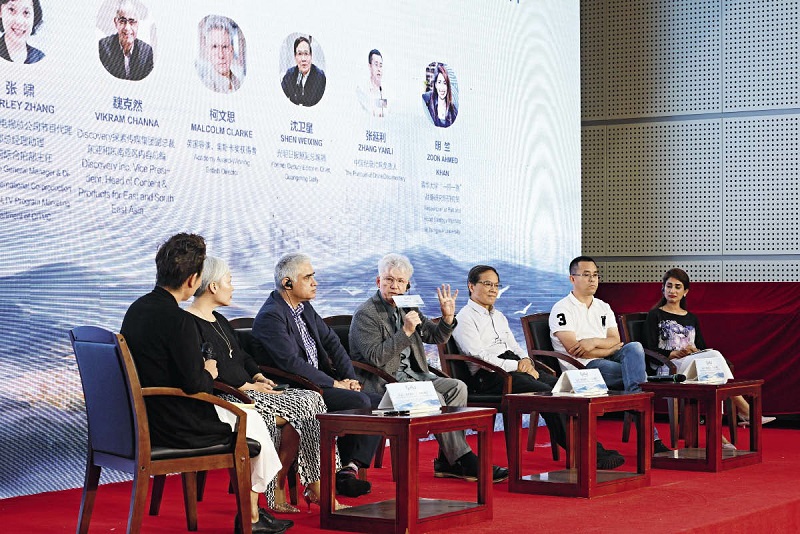
Malcolm Clarke speaks at the premiere of his documentary held at China International Publishing Group on July 13, 2021.
What Is the Charm of China?
Stories in the documentary started in the mountainous areas of southwest China, and ended in the country’s east coast. During his journey across China, Clarke met people from different backgrounds and found the thing they had in common was that they had all been very poor. “In each episode, you get to see how the Xiaokang became a reality, and worked its magic in their lives,” he said.
Clarke said that the story is about the process of Xiaokang in China, which is partially to do with poverty relief, and partially to do with helping Chinese people to realize their own potential. It is about the Chinese dream and how to attain it. Everyone is benefitting from the policies which have made China a much fairer and more livable place.
Vikram Channa, vice president of production and development for Discovery Networks Asia-Pacific, was also present at the premiere. The Discovery Channel is the most watched TV channel in the world, with an audience of more than 300 million in more than 220 countries and regions. Channa, who joined the Discovery Channel in 1995, is one of the prominent figures in content creation for the channel. He echoed Clarke’s sentiments and noted that there are many unreasonable prejudices across the globe. The social network that connects people from different countries in the 21st century has actually caused the polarization of the world. Therefore, it was necessary to shoot a documentary which tells the story about the real China.
Channa also mentioned three other popular documentaries — First Man Out of China, Master Class and The Day I Run China to explain how the Discovery Channel worked with Chinese creation teams. He likened the two sides as coffee and coffee beans in the cooperation. “The Chinese creation team delivers quality coffee beans to us, and we make them into coffee for the audience.”
The premiere of First Man Out of China was on Bilibili — a popular Chinese online video platform for young people, and it was a great success. Master Class was a collaboration between the Discovery Channel and Tencent Video. The Day I Run China was a collaboration of Mango TV and the Discovery Channel, and it was very popular overseas. Channa admitted that without a local partner in China, they would not be able to make these eye-catching documentaries. “Through this kind of collaboration, a fast growing and vibrant China can be shown to global audiences,” he said.
Channa also shared his thoughts while teaching at Beijing Normal University, emphasizing that young Chinese are growing up with a profound understanding of their traditional culture and values, as well as an open and inclusive attitude toward the world. They are ready to make a splash on the international stage, he said.